STEPS
TOOLS

First, contact a local chicken farm or pet store, free range is preferable. Ask for more then the amount of baby chickens you have in mind, it is almost certain that some will die. Sad, but true.
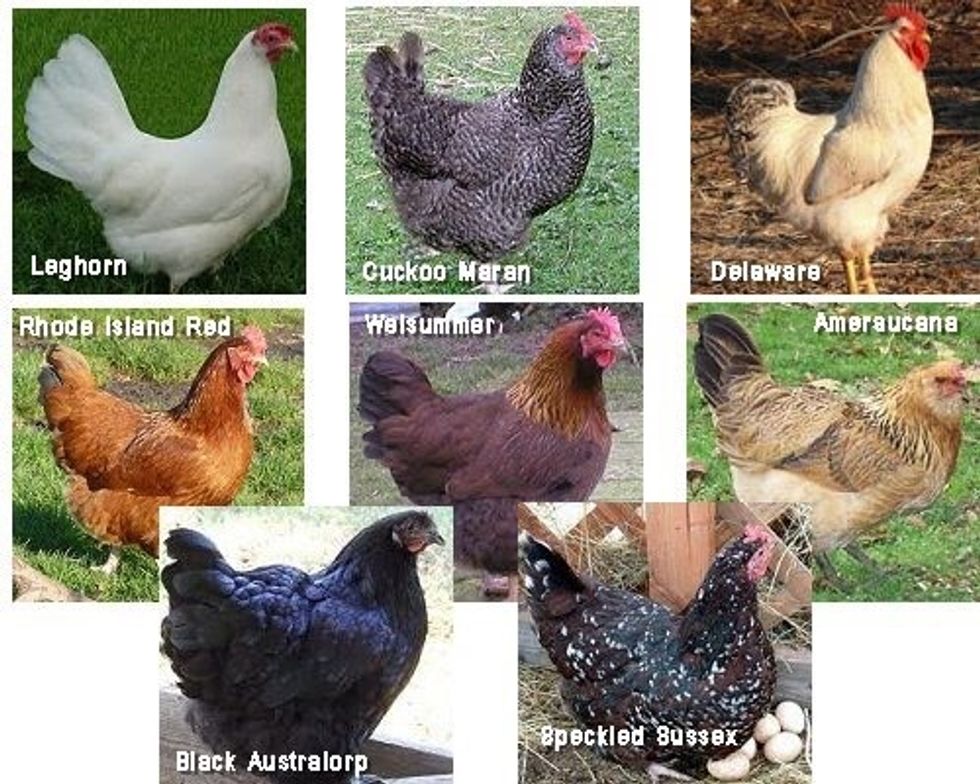
When buying, look for breeds like Leghorns, Rhode Island Reds, Australorps, Plymouth Rocks or New Hampshires. These are all good egg laying breeds and are all family friendly.
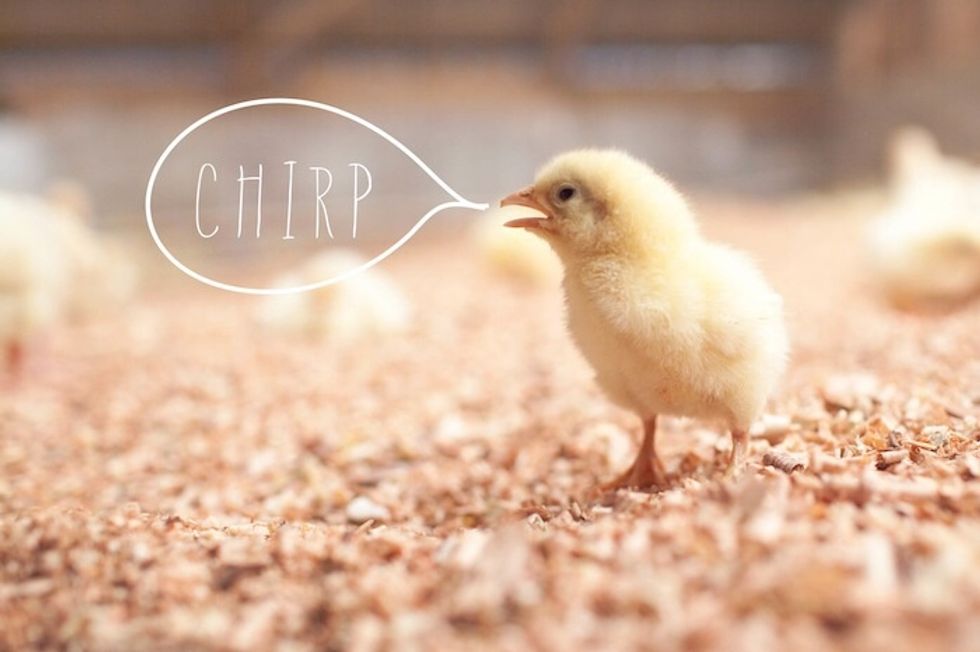
Be prepared for the chicks to cheep all day, all night. This is perfectly normal, unless something's wrong, when the cheeping increases. Clean their box every few days and give them fresh food & water
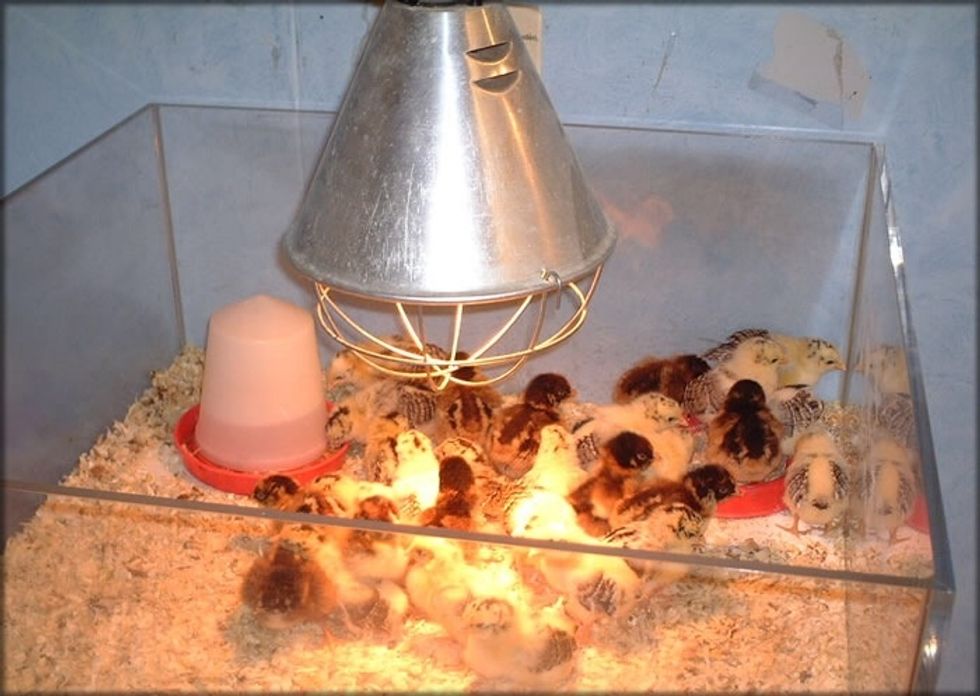
Once you have your chicks, keep them under a heatlamp. When you get them you will probably have been asked what gender you want. Get mainly hens with 1 or 2 roosters.

Feed your chicks from a small container, using finely crushed chick feed, available at your local co-op. Put this in a place it won't tip over and is easy to reach.
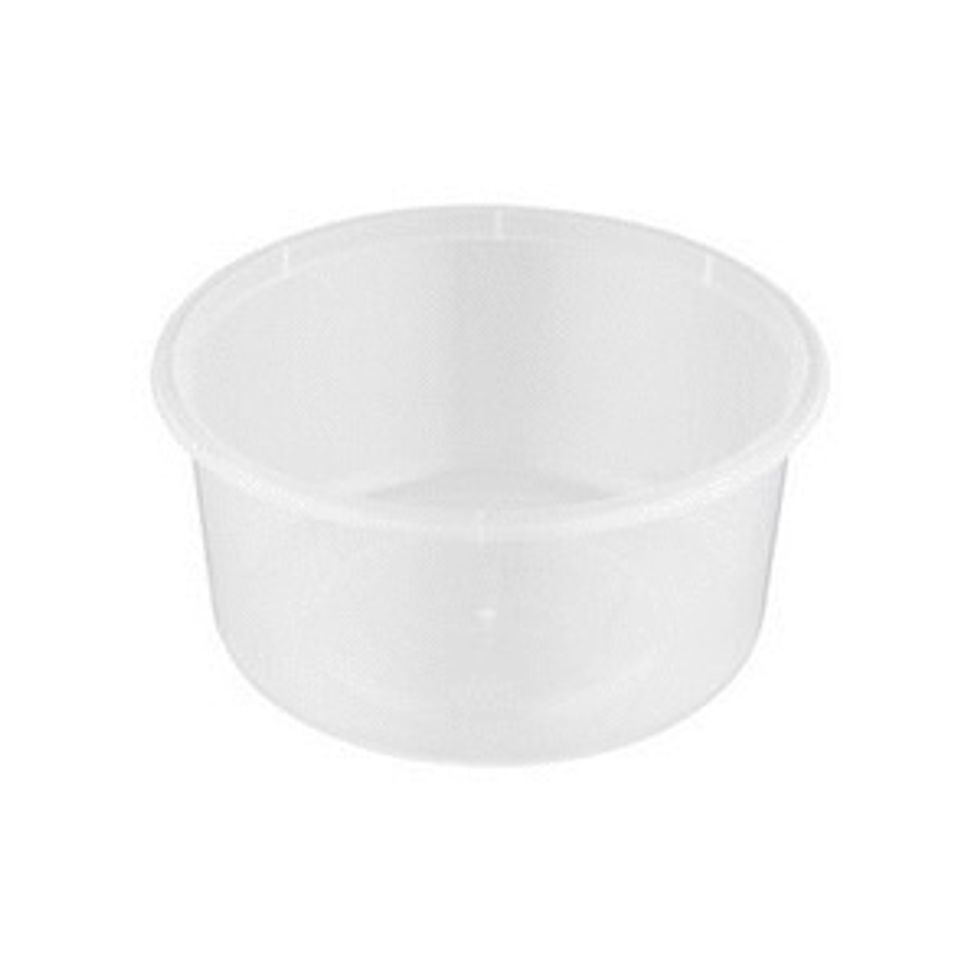
Use another small container of similar size to hold the water you're giving your chicks. Be sure you don't put too much in or the chick may fall in and drown. Put this near the feed.
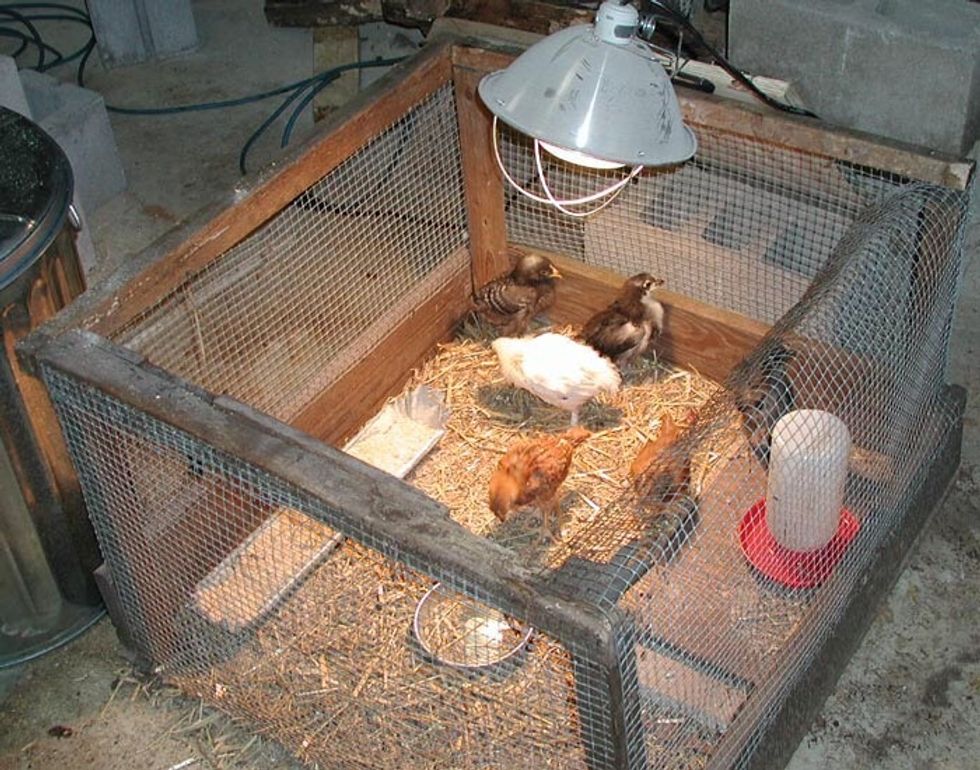
When your chicks are a little older move them out of the box into a small cage. Keep a heat lamp on them in temperatures below 26 degrees. Be sure to keep them like this until they're fully feathered.
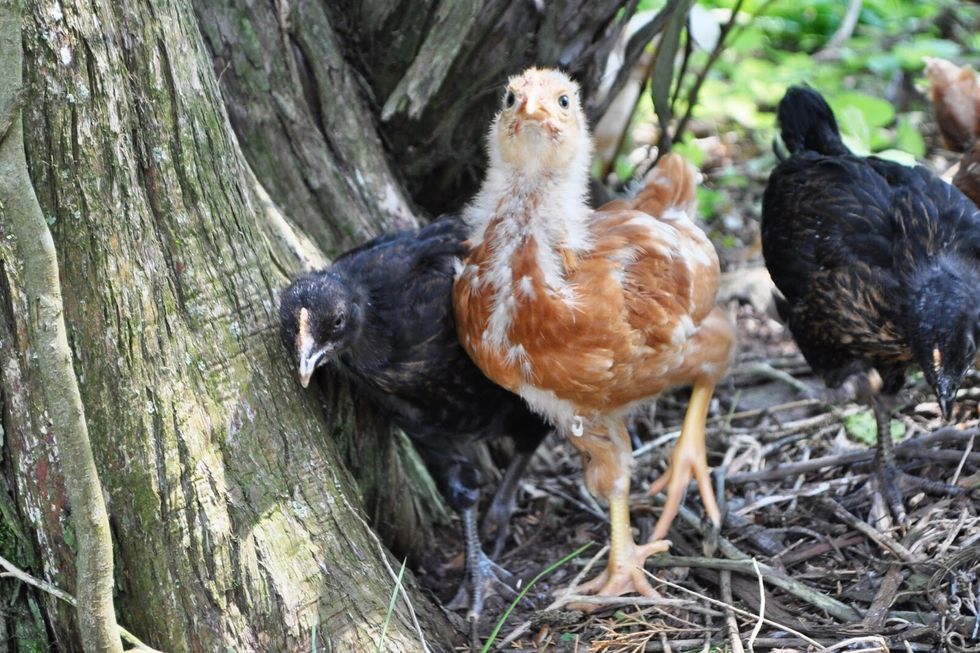
Once chicks reach the fully feathered stage, you can begin giving them food for adult birds, be sure to mix in bugs, fruit and veggies you don't want, and even lawn clippings.

You can move your chicks into a pen now, even let them walk around in your backyard, but keep them AWAY FROM OTHER ANIMALS! Now to build your chook pen.
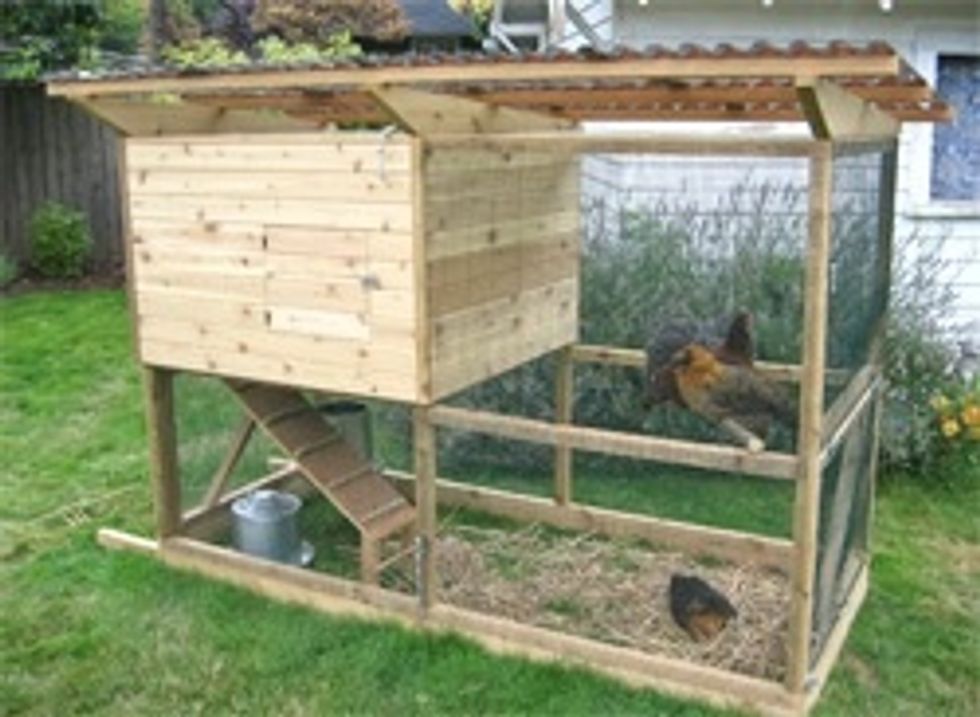
Use corrugated iron and wood to make a well ventilated, spacious area with nesting boxes and perches, be prepared for this area to be stripped of anything the chickens can eat.
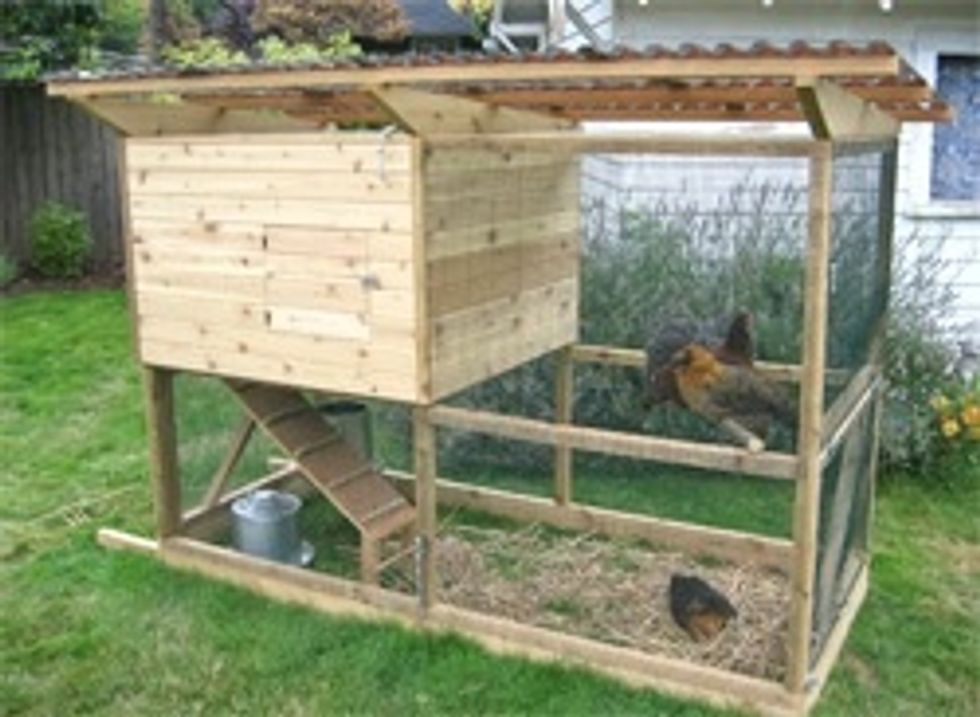
If this is a permanent chook pen, put wood at the base and wire under the ground surrounding the pen. This protects your hens from unwanted pests (ie foxes, dogs)

If you have a rooster, be prepared for broody hens. If you want more chicks for free, let the hen sit there. If not, move the hen but be prepared for if to peck you!
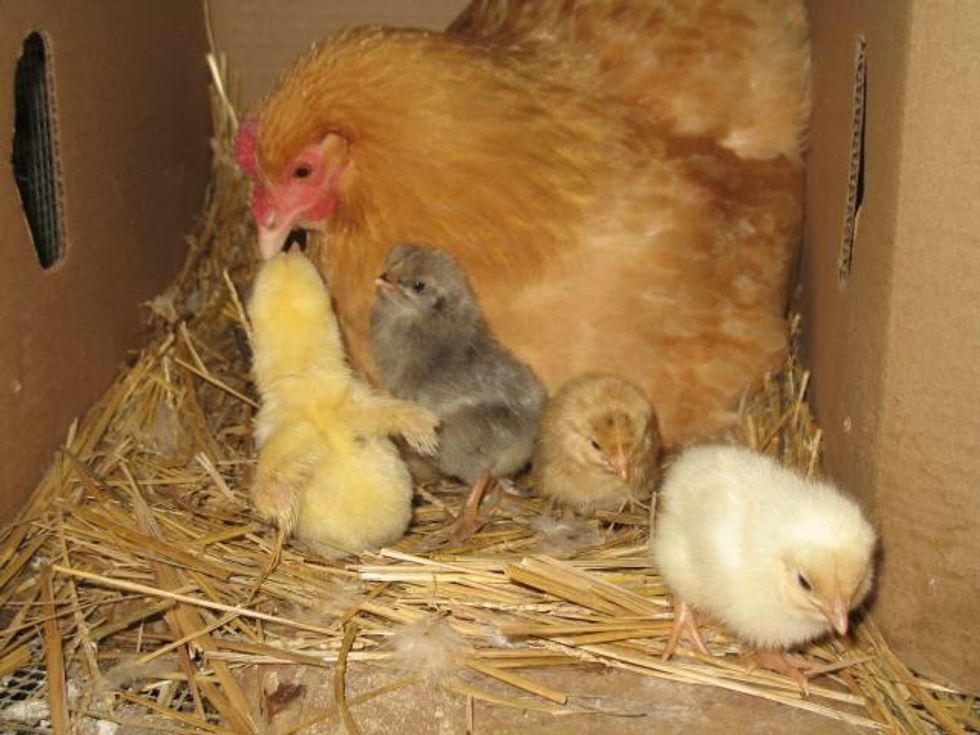
Once your chicks are hatched, let the mother take care of them. If the mother doesn't want them, revert to step one. With normal chicken feed toss the chicks some of that finely crushed chook feed.

Be warned. Keeping chooks will attract foxes, snakes, cats and dogs. It is a big commitment, but if you have built a suitable pen, then your chickens should be safe enough.
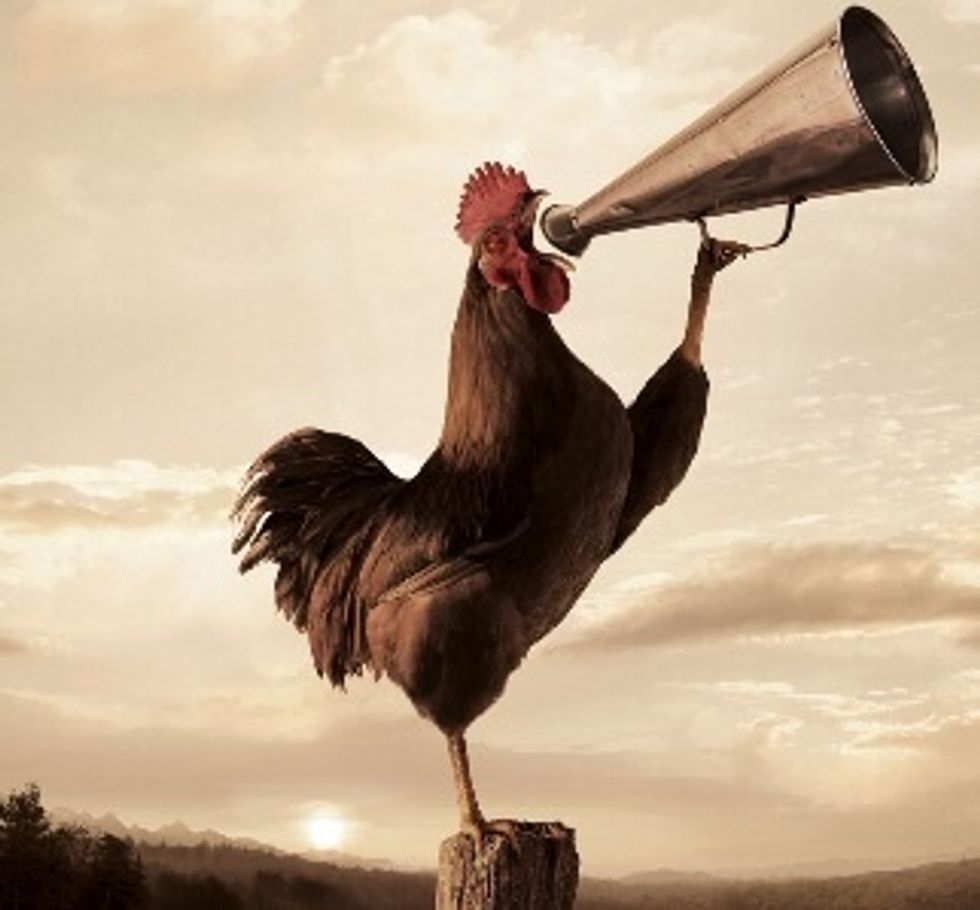
If you have a rooster, it will crow. If you live in a suburban area, you may have to get rid of it. That's just the sad reality of not living in the country. Roosters help reduce fights among the hens

Enjoy your tasty, fresh, homegrown eggs! (If you only have a few hens, the issue mentioned on the page before is redundant.)
- Chicks (go to a local co-op/pet store to buy some)
- Chicken wire
- Planks of wood
- Corragated iron or any other metal that's around
- Chook feed (go to local co-op or pet store)
- A backyard with grass
- A heat lamp
- Chick (baby chook) feed (go to local co-op)
The Conversation (0)
Sign Up